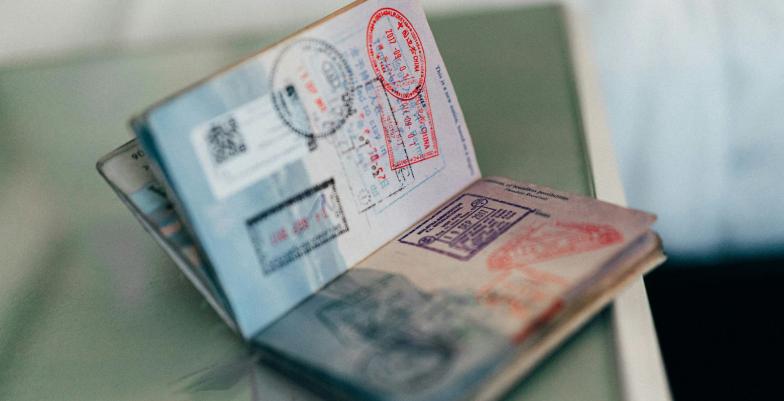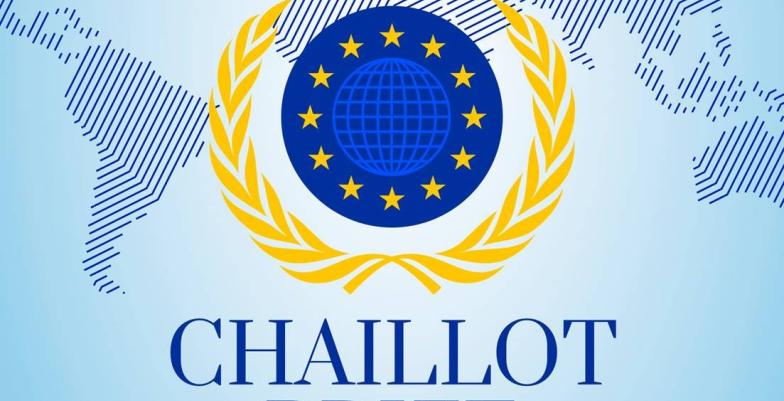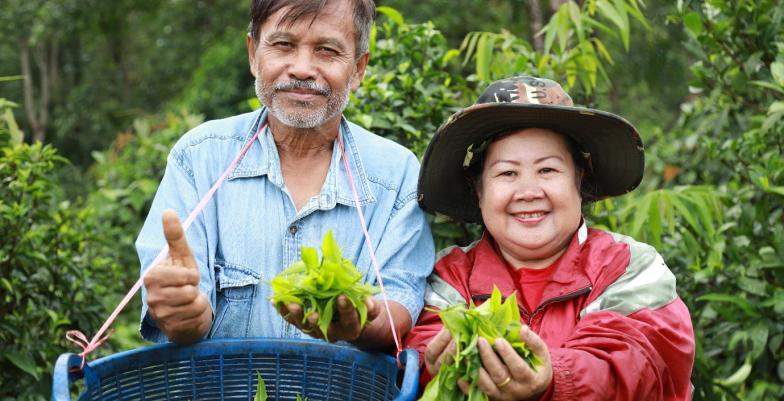RELATIONS WITH THE EU
Saudi Arabia and the EU
The Delegation of the European Union in Riyadh was officially opened in 2004. With the Lisbon Treaty and the setup of a unified diplomatic service (European External Action Service), it is now an embassy, representing the EU as a whole and speaking on behalf of the Member States where there is unanimous agreement in foreign policy areas. The EU Delegation accredited to the Kingdom of Saudi Arabia, the Sultanate of Oman, the Kingdom of Bahrain and the Gulf Cooperation Council Secretariat. The Delegation deals with a wide variety of areas, including political relations, economic and trade cooperation, energy, climate change, cultural cooperation, security, space and consular focal point.
Mission of the Delegation
The Delegation of the European Union in Riyadh was officially opened in 2004. With the Lisbon Treaty and the setup of a unified diplomatic service (European External Action Service), it is now an embassy, representing the EU. It’s accredited to the Kingdom of Saudi Arabia, the Sultanate of Oman, the Kingdom of Bahrain and the Gulf Cooperation Council Secretariat. It deals with political relations, economic and trade cooperation, energy, climate change, cultural cooperation, security, space and being a consular focal point.
Priorities and the way forward
- Cooperate on Peace & Security in the wider region
- Increase trade & investment
- Support Vision 2030 transformation and economic diversification
- Join forces to make the Green Transition happen
- Promote cultural exchanges; Provide support to EU regional cultural programmes
- Encourage people-to-people dialogue
Bilateral relations
Bilateral relations between Saudi Arabia and the EU are based on their mutual interest for regional stability, security, economic cooperation and humanitarian assistance. There have been numerous high-level visits of political significance from the leaders of the EU institutions, as well as the EU member states to the Kingdom. Saudi officials have reciprocated these visits in Brussels and other European capitals.
The EU Delegation in Riyadh has developed a wide network of interlocutors in the Saudi government and society (civil society organisations, universities, research centres, media establishments) in order to further promote the EU messages on policies and values to the Kingdom pursuing synergies with local partners, while better understanding the values and culture of our Saudi hosts.
Cooperation Arrangement with Saudi Arabia
The European External Action Service and the Ministry of Foreign Affairs of the Kingdom of Saudi Arabia signed a cooperation arrangement on October 3, 2021, which provides a framework for our cooperation on the political level, but also on a technical level.
Official political dialogues between senior officials between the EU and Saudi Arabia will be organised on a yearly basis. but the arrangement allows for enhanced cooperation on topics of common interest that concrete projects that will be implemented to be discussed in the first Senior Official Meeting, to monitor progress of current projects, but also to constantly adapt the areas of engagement according to the EU’s and Saudi Arabia’s defined priorities.
Trade and investment relations
The EU is Saudi Arabia’s second trading partner, with 14.8% of Saudi Arabia’s global trade (China is first with 18.7 %). Saudi Arabia is the EU’s 17th trading partner in goods, with a total trade of 40 bn Euro and with an EU market share of 1.1 %.
Saudi Arabia mainly imports machinery and equipment from the EU while it mainly exports oil and petrochemicals to the EU, it’s also a major contributor to the diversity of food products in the Kingdom. Furthermore, companies from EU Member States work along Saudi Arabia in several strategic sectors, established in the Saudi Vision 2030, such as developing the metro lines in Riyadh, energy and environment projects, tourism and culture, construction, industrial machinery and pharmaceuticals. Furthermore, EU-Saudi Arabia bilateral trade consultations took place in 2021 for the first time.
Cultural relations
An increasingly large and broad range of EU cultural activities promote cultural diversity, youth, creativity, exchange and multiculturalism. A large part of these activities are implemented by the European Union National Institutes for Culture (EUNIC).
The EUNIC cluster in Saudi Arabia, created in 2021, is a European network that aims to strengthen international dialogue and cultural cooperation. It supports local organizations and creative industries in KSA; and promotes better knowledge of the EU and cultural exchanges and mobility of artists.
Education
Erasmus +
This program is active in the Gulf region and provides young people and academics the opportunity to study or teach abroad. The aim is to create a dialogue between cultures in the Gulf region.
Human Rights
The Chaillot Prize for human rights activities in the GCC countries
Since 2009, the EU Delegation in Saudi Arabia has run, on an annual basis, the Chaillot Prize for the Promotion of Human Rights in the GCC Region. The Prize honours local civil society organisations, public or private institutions, as well as individuals for their efforts in promoting general awareness of human rights and the rights of vulnerable groups in the GCC region. Winners of the prize in Saudi Arabia include Al-Nahda society, Glowork and King Khaled Foundations.
Projects
Enhanced EU-GCC Political Dialogue, Cooperation and Outreach
In December 2020, the EU launched a new project entitled “Enhanced EU-GCC Political Dialogue, Cooperation and Outreach” aimed at deepening cooperation between the EU, the GCC and its Member States, and enhancing knowledge about the EU in the GCC. The overall objective of the project is to contribute to a stronger relationship between the EU and the GCC countries as well as with the GCC Secretariat.
The EU-GCC Dialogue on Economic Diversification project
The EU-GCC Dialogue on Economic Diversification project was launched in 2018. The purpose is to promote trade, investment and economic affairs through related policy analysis, dialogue and co-operation between the EU and GCC at both regional and individual country levels. The project has been working to support policy dialogue, organise Business Forums and exchange technical expertise to assist the Kingdom in its economic diversification strategy embedded within Vision 2030.
The EU-GCC Clean Energy Technology Network 2010 - 2021
The EU-GCC Clean Energy Technology Network was established in 2010 and funded by the EU, to foster closer cooperation between the EU and GCC countries on clean energy policies and technologies. The Network has proven to be an excellent tool to enrich the EU-Saudi Arabian energy dialogue and cooperation, to engage with Saudi Arabia and EU partners in the discussion on sustainable energy policies and to facilitate the sharing of clean energy policies, technologies and best practices.
EU-GCC relations
EU-GCC cooperation is based on the 1988 Cooperation Agreement. Since then, political consultations at the highest level have been taking place on a regular basis, as well as regular SOMs and Ministerial meetings.
The EU is the 2nd biggest trade partner of the GCC (after China, 15.8%), representing 11.9% of the GCC’s total trade in goods with the world in 2020 and 17.4% of the GCC’s imports came from the EU in 2020. In 2020, the EU was the 4th biggest export partner of the GCC as 6.9% of the GCC’s exports went to the EU. A structured informal EU-GCC dialogue on Trade and Investment was launched in May 2017 and has been meeting since on an annual basis. Furthermore, the 11th EU-GCC macroeconomic dialogue took place virtually in 2021 and focused on the policy responses to the COVID-19 crisis and its medium-term economic implications.
EU-GCC Free Trade Agreement (FTA) trade negotiations
The EU and the GCC launched negotiations for a Free Trade Agreement (FTA) in 1990. The negotiations were halted in 2008, when the GCC countries suspended negotiations. The GCC has requested in 2019 extensive information about the modern EU FTA, which foresees a progressive and reciprocal liberalisation of trade in goods, in services and includes investment facilitation, customs facilitation, procurement and energy cooperation.
Security cooperation
The EU Delegation aims to develop an extensive and confident dialogue on security (including regional security) and counter terrorism with partner countries such as Saudi Arabia. It also aims at developing a close cooperation in different fields like counter-terrorist finance and anti-money laundering, combatting extremism and at strengthening EU-GCC cooperation in sectors of great importance for our common security such as justice, cyber security, police (Europol) and Chemical, Biological, Radiological and Nuclear (CBRN) Risk Mitigation Centres of Excellence (CRBN CoE).






